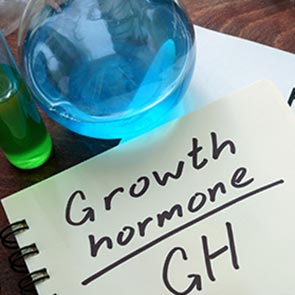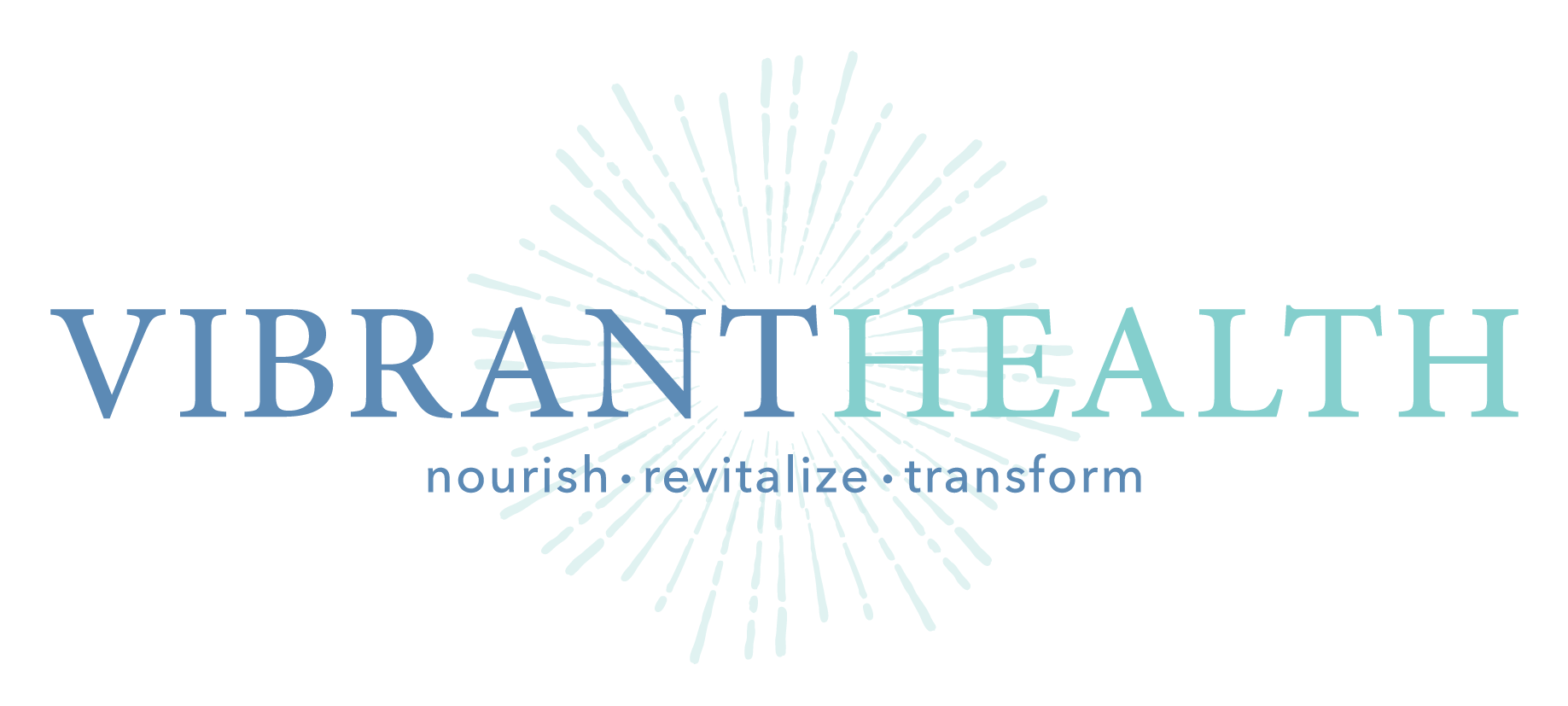Growth Hormone Deficiency Treatment in Newburyport, MA

If your child's growth, tooth development puberty have been substantially delayed these may be signs of growth hormone deficiency. So can anxiety, hair loss, decreased sex drive, fatigue, or weight gain in adults.
Growth hormone deficiency occurs when the pituitary gland doesn't produce sufficient somatotropin, an important growth hormone. This deficiency causes different symptoms in children and adults. Researchers are finding that growth hormone deficiencies may contribute to shortened patient lifespans.1
If you suspect you or your child may have growth hormone deficiency, speak with a specialist today in Newburyport by calling (207) 536-9661 or contact Vibrant Health Naturopathic Medical Center online.
What are the symptoms of growth hormone deficiency?
Growth hormone deficiency symptoms present differently in children and adults. Some people with growth hormone deficiency present no symptoms.
In children
The symptoms of growth hormone deficiency in children affect their physical development. Often, their height and weight will be well below their peers. Other symptoms include:
- younger facial features than children their age
- delayed or absent puberty
- increased face and stomach fat
- slow tooth development
- slow hair growth
Some children are simply "late bloomers" and don't have a hormone imbalance that poses a medical concern. If you're concerned, talk to your healthcare provider about growth hormone deficiency testing.
In adults
Most adults with growth hormone deficiency experience a combination of these symptoms:
- anxiety
- depression
- male baldness
- decreased sexual interest and performance
- reduced muscle mass and strength
- dry or thinning skin
- elevated triglycerides
- chronic fatigue
- heart problems
- high cholesterol
- insulin resistance
- exercise intolerance
- reduced bone density and osteoporosis
- heat or cold sensitivity
- weight gain, especially around the waist
What causes growth hormone deficiency?
Growth hormone production occurs in your pituitary gland, and deficiencies result when the gland doesn't produce enough of the hormone. Congenital (genetic) growth hormone deficiency is extremely rare. If the condition occurs during childhood or adulthood, it's called acquired growth hormone deficiency. Causes in children can include:
- severe head injury
- head tumor
- medical history of pituitary tumors
- certain infections
- brain surgery
- hormonal imbalances related to the hypothalamus
- weak blood supply to the pituitary gland
- radiation therapy near your brain
Researchers believe children with certain genetic mutations may be at greater risk of developing growth hormone deficiencies.
How is growth hormone deficiency diagnosed?
After a physical examination you'll discuss symptoms and medical history with your healthcare provider. Blood and imaging tests to help diagnose or rule out a hormone deficiency are typically recommended.
Blood tests
Your healthcare provider will draw a small sample of blood and send it to a lab for close analysis. These tests are identical for children and adults. They include:
- GHRH-arginine test
- binding protein levels: to show whether the problem is caused by the pituitary gland
- amount of growth hormones in the blood sample
- amounts of other hormones produced by the pituitary gland
- growth hormone stimulation
- insulin tolerance
Imaging
Your medical provider may also recommend imaging tests. These include:
- MRI to expose abnormalities in the hypothalamus
- dual-energy x-ray (DXA) to measure bone density
- hand x-ray to reveal abnormalities in the bones' size or shape
- head x-ray to show problems with the skull's size or shape
Treatments
As with any medical procedure, results of growth hormone deficiency treatment will vary from patient to patient depending on age, genetics, general health, condition severity, follow-up care, and environmental factors. Consult your healthcare provider before embarking on your treatment journey.
The following pharmaceutical, regenerative, nutritional, and herbal treatments may present contraindications with one another, and/or with other medical conditions. Always consult your health care professional before deciding which treatment to try first.
Hormone therapy
Hormone balancing therapy is one way to treat growth hormone deficiency. Getting lots of sleep, eating a healthy diet, exercising regularly, avoiding tobacco, and limiting alcohol intake is crucial for successful treatment.
The hormone, called somatotropin, can be self-injected or administered by a family member. Amount and frequency will vary depending on medical history and severity of condition.
During your treatment, you'll be monitored carefully for side effects and condition changes. You can expect regular blood tests to monitor cholesterol, blood glucose, and bone density levels for optimal health.
Children require special steps. They can experience sudden growth spurts during treatment - 4 inches or more during the first year is typical. Over the next two years, they may grow another 2-3 inches before reaching normal levels.
Bioidentical Hormone Replacement Therapy (BHRT)
Adults with growth hormone deficiency have the option of getting bioidentical hormone injections. Bioidentical growth hormones are derived from natural plant estrogens that are molecularly identical to those the human body produces.
Throughout your treatment, your healthcare provider will monitor your hormone levels and adjust them as needed.1 During times of extreme stress, certain illnesses, and before surgical procedures, your hormone medication dosage will need fine tuning.
What are the side effects of hormone therapy?
Like any medical treatment, hormone therapy may cause side effects. These commonly include:
- swelling, bleeding, or bruising at the injection site
- joint and muscle aches
- hip pain
- headaches
These side effects usually mean you or your child are taking an incorrect hormone dosage. If this occurs, your medical provider will adjust your dosage. Common side effects of BHRT include acne, bloating, weight gain, and mood swings.
Not all patients are good candidates for growth hormone therapy, such as those with tumors, cancer, multiple traumas, and breathing problems. Rarely, hormone therapy can increase your risk of developing diabetes, especially people with a family history of diabetes.
Herbal treatments
Adaptogen herbs help the body maintain homeostasis by normalizing cortisol levels. Ayurvedic medicine has prescribed them for centuries, and today's researchers are continually working to explain their function and confirm their efficacy in clinical trials.
The most thoroughly studied and clinically validated adaptogen herb is ashwagandha. According to research published in Alzheimer's Research and Therapy, "Ayurvedic medicinal plants have been the single most productive source of leads for the development of drugs." 2
This member of the Solanaceae (nightshade) family can also help improve bone growth and mass due to its unique withanolide structure that demonstrates these medicinal properties:
- thyroid-modulating (balanced the thyroid hormone)
- neuroprotective (helps regulate neurotransmitters)
- anti-anxiety
- antidepressant
- antioxidant
- anti-inflammatory
Some parts of the plant contain more of withanolides than others. Leaf extracts usually contain higher levels of withaferin A than root extracts, for example. Knowing the source of your ashwagandha extract is important, that's why working with a healthcare provider will yield more efficacious results.
In appropriate doses, ashwagandha is safe, but does pose possible side effects like upset stomach, vomiting and diarrhea. If you notice any of these side effects, stop taking the herb right away.
Other adaptogenic herbs with medicinal properties include:
- astragalus root: stimulates growth hormone in the pituitary gland3
- ginseng: reduces concentrations of inactive, thyroid hormone-inhibiting rT3
- basil: antioxidant, anti-inflammatory, antibacterial, anti-stressor
- rhodiola: has demonstrated anti-stress, anti-fatigue function
Nutritional and lifestyle therapy
- arginine: an amino acid that stimulates the production of certain hormones, commonly found in supplements and in foods like eggs, yogurt, beef, liver and other organ meats, walnuts, and almonds
- probiotics: stimulate your gut flora for a metabolic response, can be taken by supplement and is found in foods like raw cheese and yogurt, and in fermented foods
- copper: a deficiency can intensity symptoms, so eating copper-rich foods like nuts, seeds, seafood, beans, liver, and oysters may help maintain hormone balance
- glycine: an amino acid that may increase your hormone levels, but evidence is mixed when tested in patients with an existing growth hormone deficiency4
- melatonin: a hormone that may increase the quality and duration of your sleep enhancing growth hormone production
- exercise: daily physical activity may temporarily spike growth hormone levels, but losing weight and decreasing body fat may help balance levels long-term
- reducing sugar intake: increasing your insulin levels may lower your growth hormone production, so reducing your levels may help optimize your hormone production
- GABA: a non-protein amino acid that acts as a calming agent and may raise growth hormone levels; however, studies have shown that these gains are typically short-lived5
Getting enough restorative sleep can help normalize growth hormone levels and alleviate depression. If you or your child is experiencing stress, depression, or other emotional difficulties due to self-esteem or anxiety issues, speaking with a mental health counselor or therapist is a great idea. Ask your medical provider or look online for a reputable counselor. Support groups can help you or your child manage your feelings in a healthy way during these difficult periods.
Reserve Your Appointment Now
Growth hormone deficiency can severely impact your health and happiness. There are many treatments that may help reduce or eliminate your symptoms so you and your child can get back to enjoying doing everything you want and need to do.
If you suspect growth hormone deficiency, speak with a specialist today in Newburyport by calling (207) 536-9661 or contact Vibrant Health Naturopathic Medical Center online.
1. Gupta, Vishal. “Adult Growth Hormone Deficiency.” Indian Journal of Endocrinology and Metabolism, vol. 15, no. 7, 2011, pp. 197–202., doi:10.4103/2230-8210.84865.
2. Rammohan V Rao, Olivier Descamps, Varghese John, Dale E Bredesen. Ayurvedic medicinal plants for Alzheimer's disease: a review. Alzheimers Res Ther. 2012; 4(3)
3. Kim C1, Ha H, Kim JS, Kim YT, Kwon SC, Park SW. Induction of growth hormone by the roots of Astragalus membranaceus in pituitary cell culture. Arch Pharm Res. 2003 Jan;26(1):34-9.
4. Arwert, L.i., et al. “Effects of An Oral Mixture Containing Glycine, Glutamine and Niacin on Memory, GH and IGF-I Secretion in Middle-Aged and Elderly Subjects.” Nutritional Neuroscience, vol. 6, no. 5, 2003, pp. 269–275., doi:10.1080/10284150310001612195.
5. Powers, Michael E., et al. “Growth Hormone Isoform Responses to GABA Ingestion at Rest and after Exercise.” Medicine & Science in Sports & Exercise, vol. 40, no. 1, 2008, pp. 104–110.
Vibrant Health Naturopathic Medical Center
Address
3 Riverside DriveGreenland, NH 03840
(207) 536-9661
www.vibranthealthnaturalmedicine.com
Hours
Mon:
8:30 am - 5:00 pm
Tue:
9:00 am - 5:00 pm
Wed:
10:30 am - 5:00 pm
Thu:
9:00 am - 5:00 pm
Fri:
10:00 am - 4:00 pm
Sat:
Closed
Sun:
Closed

